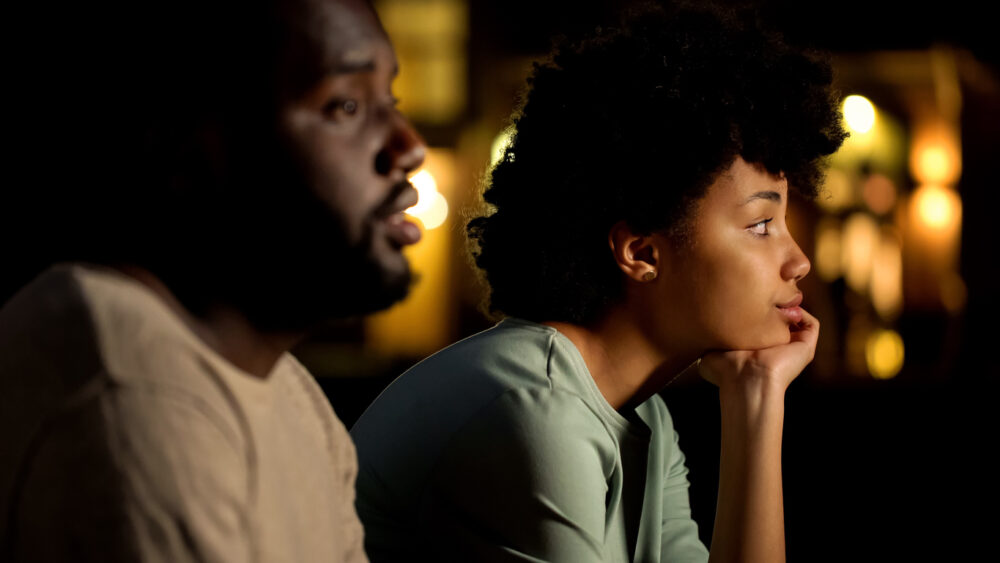The old vows don’t hold the same weight they used to.

It’s not that people today hate love or commitment—it’s just that the whole idea of marriage doesn’t shine the way it once did. The romance of rings, vows, and shared last names has given way to more skeptical questions about freedom, finances, and personal identity. For many in this generation, marriage feels less like a dream and more like a risky business contract dressed up in tulle and champagne.
This shift isn’t just about changing attitudes—it’s about real experiences. Watching parents divorce, struggling through unstable economies, and growing up in a culture that prioritizes personal growth over permanence has reshaped how younger generations think about long-term partnerships. Some still choose marriage, but fewer see it as a required milestone. Here are 11 raw, real reasons why so many are choosing to walk away from the altar altogether.
1. Divorce feels more common than lasting love.

You grow up watching couples split—friends’ parents, your own family, even celebrities who once looked perfect on paper. Eventually, it starts to feel like long-lasting marriage is more fairy tale than fact. Divorce isn’t just common; it’s practically expected. That looming possibility makes many people wonder why they’d even bother saying “I do” in the first place, according to Anastasiia Builova at Hybrid Magazine.
It’s hard to embrace a tradition that statistically doesn’t work out for half the people who try it. And it’s not just the heartbreak—they’ve seen the drawn-out custody battles, the financial strain, and the emotional toll. The whole process seems more painful than promising. That disillusionment stays with people, making them hesitant to commit to something that so often crashes and burns.
2. Financial independence matters more than shared accounts.

Millennials and Gen Z were raised to value independence. They pay their own bills, manage their own side hustles, and hustle hard just to stay afloat. Tying their finances to another person feels risky, even suffocating. A joint account sounds less like teamwork and more like giving up control, as reported by Hanna Seariac at Deseret.
Many would rather keep their own credit scores clean, their debts separate, and their investments personal. Marriage, with its tangled legal and financial ties, can feel like a threat to hard-earned stability. Instead of dreaming about merging lives, they’re focused on building individual security. And for them, that kind of self-reliance feels smarter—and safer—than any marriage license.
3. They see long-term relationships as enough.

For younger generations, commitment doesn’t require paperwork, as stated by Lilly Blomquist at Brides. Plenty of couples live together, raise kids, share pets, and even own property—without ever getting married. To them, love isn’t proven by rings or witnessed vows. It’s built on daily choices and mutual respect, not formal declarations.
They value the freedom to choose their partner over and over, not because they have to, but because they want to. In some ways, staying together without marriage feels even more intentional. If someone sticks around without legal obligation, that feels more powerful than a signature on a marriage certificate.
4. Weddings are too expensive for what they offer.

Many can’t justify spending tens of thousands of dollars on one day. The idea of going into debt for a dress, flowers, and a catered meal feels absurd—especially when student loans, rent, and medical bills are already pressing down. The glitz doesn’t make sense when the cost could cover a down payment or months of travel.
Even if they love the idea of celebrating love, they’re skeptical of the wedding industry. It’s commercialized and performative, full of upsells and unrealistic expectations. Some would rather elope, skip the whole thing, or use the money to build actual memories instead of centerpieces and seating charts.
5. They don’t trust traditional gender roles.

Marriage often still comes with old-fashioned assumptions—about who cooks, who cleans, who works, who stays home. Many younger people reject that script entirely. They want equal partnerships, not roles handed down by outdated norms. The moment marriage feels like it pushes them into a mold, they push back.
There’s also the worry that once that ring goes on, everything shifts. Expectations pile on. Suddenly, one partner might feel pressure to earn more, settle down, or become someone they never signed up to be. Avoiding marriage can feel like avoiding the trap of turning into a cliché.
6. They’ve been burned by watching marriages fail.

It’s not just statistics—it’s personal. Seeing friends go through messy breakups or watching their own parents fall apart left scars. Even the marriages that “worked” often looked like quiet resignation rather than happiness. That leaves an emotional residue that’s hard to shake.
It’s one thing to know relationships are hard. It’s another to grow up surrounded by the wreckage of ones that didn’t make it. For many, marriage doesn’t signal security—it signals the beginning of the end. So they hold it at arm’s length, choosing situations where they can exit without devastation if things go wrong.
7. Freedom is prioritized over permanence.

There’s a growing desire to keep life flexible. People want to move cities, change jobs, shift careers, travel, and explore different identities. Marriage, with its perceived permanence, can feel like an anchor. For some, it suggests a kind of settling down they’re not ready—or willing—to do.
Being single or in a non-married partnership means they can grow without negotiating every decision. They don’t want to ask for permission or compromise their dreams for a shared plan. Autonomy feels more valuable than tradition, and many don’t want a ring to get in the way of reinvention.
8. Legal benefits no longer feel compelling.

Marriage used to offer clear advantages—tax breaks, shared health insurance, inheritance rights. But these perks are becoming less persuasive. With shifting policies and more accessible alternatives (like domestic partnerships or private agreements), the legal benefits of marriage aren’t as critical as they once were.
Add in the fear of legal entanglement during a breakup, and many would rather keep things simple. The cost of a potential divorce, legally and emotionally, outweighs any tax refund or shared dental plan. Simplicity and clarity win out over red tape and risk.
9. Social pressure to marry has faded.

It used to be that everyone got married—or felt they had to. Now, that pressure has relaxed. People aren’t side-eyed for being single in their 30s or for living with a partner without rings. In fact, choosing not to marry is often seen as self-aware or even progressive.
With less external judgment, people feel free to design relationships on their own terms. They don’t have to explain or justify their choices to anyone. That freedom makes it easier to skip marriage entirely and still feel valid and respected in their choices.
10. Dating culture has rewired relationship expectations.

Apps, hookups, ghosting, long-distance flirtations—modern dating has changed everything. Many people bounce through so many short-term experiences that the idea of one forever person feels less and less realistic. The revolving door makes it hard to imagine building something that lasts decades.
The rhythm of dating now often lacks depth or commitment. So even when a strong connection comes along, there’s an underlying doubt. Can anything truly last in a world where options are endless and attention spans are short? For many, that doubt keeps marriage off the table entirely.
11. They’d rather focus on personal growth than shared milestones.

Younger generations are more interested in healing their own wounds, chasing personal goals, and understanding themselves before joining their lives to someone else’s. Marriage isn’t the next step—it’s not even on the map for many. They want therapy, career stability, creative expression, and freedom.
Being whole alone feels more important than being one half of a couple. Marriage might happen someday, but it’s not the endgame. It’s optional, maybe even unnecessary. For now, they’re choosing growth over rings—and that feels more like progress than loss.
